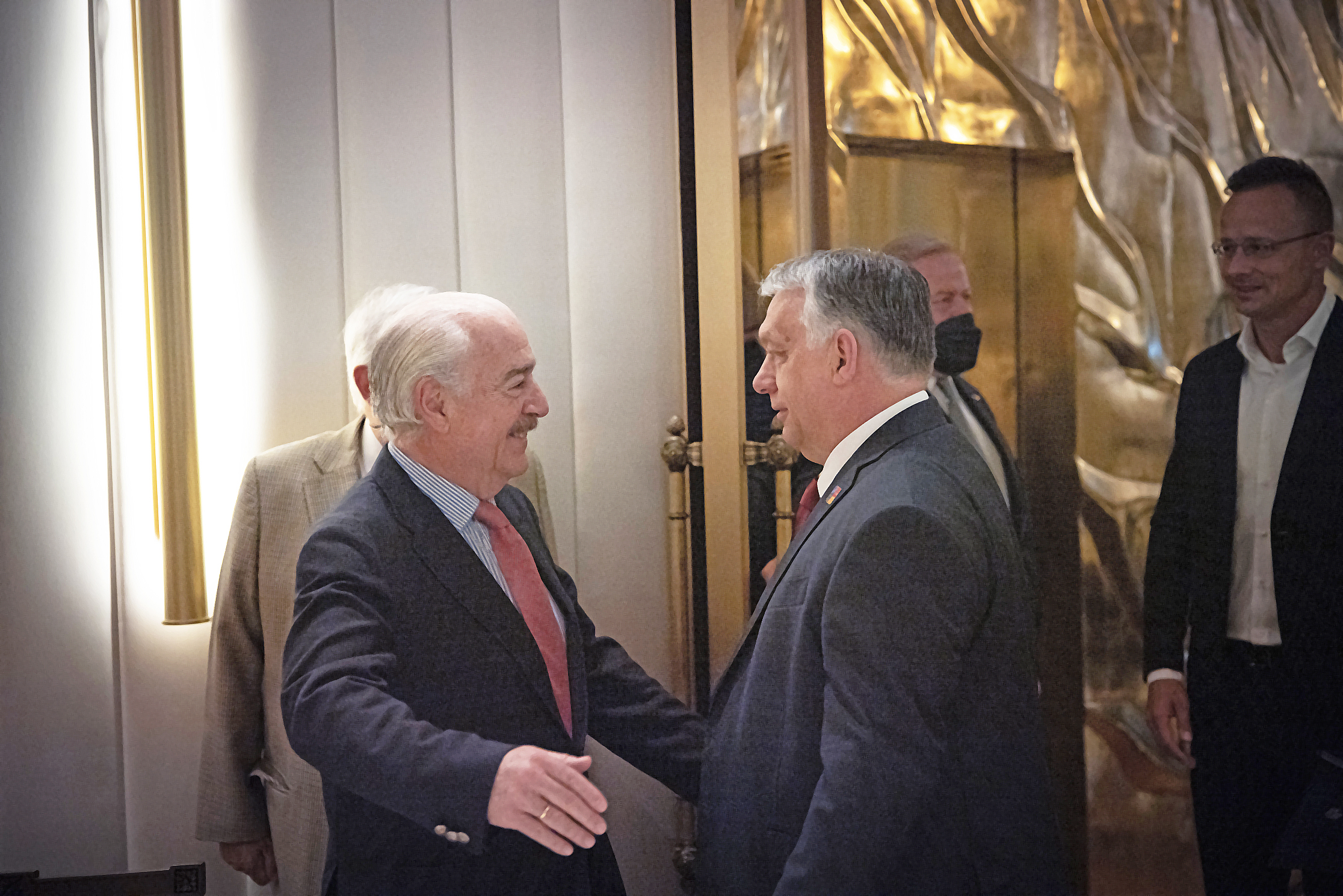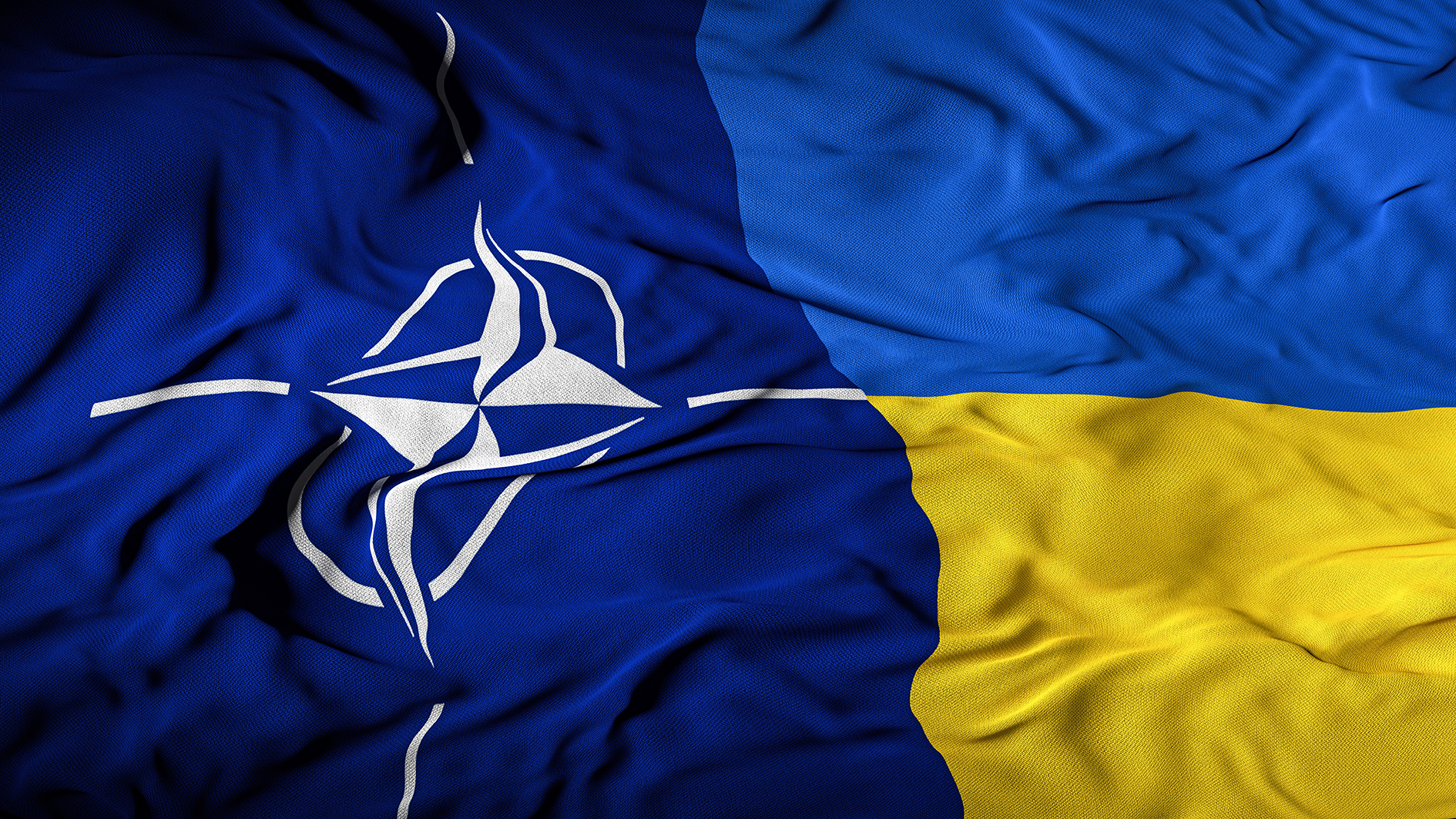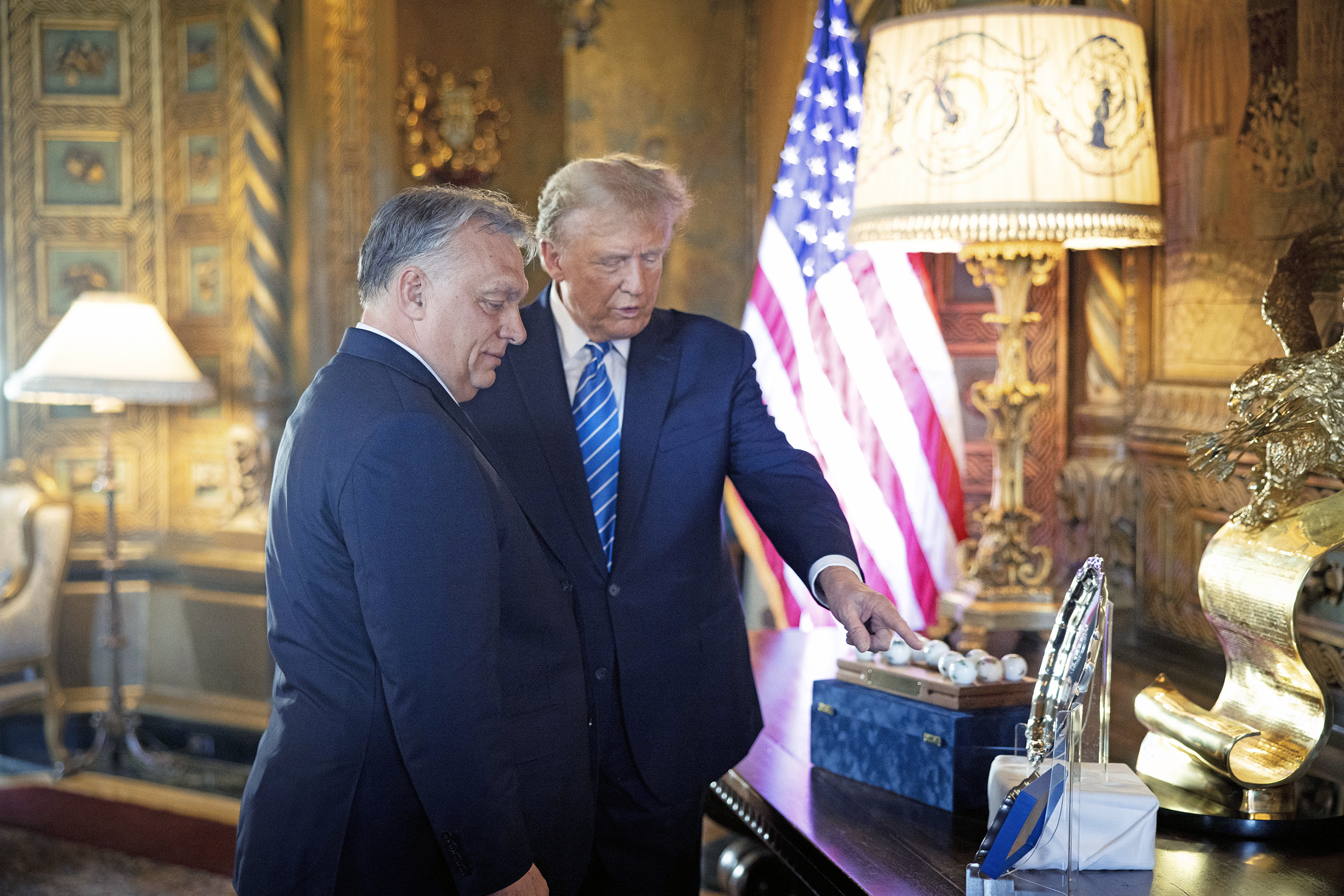Gas Woes, Support for Ukraine, and Talking Peace

In a picture released by the Prime Minister’s Press Office, Prime Minister Viktor Orbán (center right) meets with Andres Pastrana (center left), President of the Centrist Democrat International (CDI), a global Christian Democratic party, before the official start of the NATO summit in Madrid on June 29. At the meeting, also attended by the Minister of Foreign Affairs and Trade Péter Szijjártó (seen far right, just entering frame), they agreed on the need to prevent the war in Ukraine from spreading, to support the Ukrainian people and accept refugees.
Photo by Zoltán Fischer / MTI / Prime Minister’s Press Office.
Prime Minister Viktor Orbán discussed matters of cooperation with Ukrainian President Volodymyr Zelenskyy over the phone on June 21, according to Orbán’s press chief Bertalan Havasi. These ranged from Ukraine’s EU accession to supporting refugees and essential infrastructure.
Regarding Hungary’s stance on Ukraine’s integration into the European Union, Orbán voiced support for Ukraine attaining candidacy status, adding that bureaucratic obstacles impeding the country’s accession should be removed without delay. The PM also noted that Hungary had taken in close to 800,000 Ukrainian refugees and stood ready to help transport Ukrainian grain by rail.
On the same day, the European Commission approved a EUR 1.14 billion Hungarian scheme to support companies negatively impacted by the war or subsequent sanctions against Russia. Some EUR 400,000 is available in direct grants, tax reductions, equity and loans per company.
Notably, while companies from any field are welcome to apply, the upper limit does not apply to the farm sector. Financial companies, however, are ineligible for the aid. The EC concluded that the scheme is “necessary, appropriate and proportionate” to remedy a severe disturbance in Hungary’s economy.
Meanwhile, deliveries of Russian gas to Hungary dropped to 88% of their normal levels on June 20 because of technical issues, but the country’s energy supply “remains secure,” Minister of Foreign Affairs and Trade Péter Szijjártó said in a statement issued on his ministry’s Facebook page.
After speaking with Alexander Novak, Russia’s deputy prime minister for energy, Szijjártó said that gas deliveries to Western Europe had been reduced significantly recently because the equipment used for pipeline maintenance has not been returned from repair due to the sanctions against Russia.
Supply Security
Szijjártó said daily deliveries of Russian gas to Hungary have dropped from 12 million cubic meters to around 10.6 million cubic meters but that it did not pose a problem for supply security.
With supply seeming all the more tenuous, Szijjártó said in a later video on his Facebook page following a meeting of European Union energy ministers on June 28 that Hungary is not even willing to countenance a possible extension of sanctions against Russia to gas imports.
“We have no problem with the European Union looking for new sources of gas, but participation in this can only be voluntary; no obligation can be imposed on member states with regard to procurement,” he said.
Energy sovereignty was also emphasized by Gergely Gulyás, the head of the Prime Minister’s Office, in an interview with public television M1. Until alternatives are developed, he reiterated that Hungary would remain highly dependent on Russian oil and gas.
Diversification of energy sources and the expansion of choice for resource acquisitions have been ongoing goals for Hungary since the end of communism, Gulyás said. Once the Greek-Bulgarian interconnector is finally completed, currently scheduled for the end of next year, gas imports from Azerbaijan could also be possible, Gulyás said. The head of the PMO was also firmly against the idea of extending sanctions to Russian gas imports.
Orbán continued stressing the need to finance peace rather than proceed with more sanctions in a video message posted on Facebook on June 23, during a two-day summit of European Union leaders in Brussels.
“More and more ideas for sanctions [against Russia] are being brought up, and proposed sanctions are being tabled, even though the sanctions, in addition to the war, are the reason for the economic problems,” Orbán said. “We don’t need more sanctions; we need peace because peace is the only remedy for wartime inflation.”
This article was first published in the Budapest Business Journal print issue of July 1, 2022.
SUPPORT THE BUDAPEST BUSINESS JOURNAL
Producing journalism that is worthy of the name is a costly business. For 27 years, the publishers, editors and reporters of the Budapest Business Journal have striven to bring you business news that works, information that you can trust, that is factual, accurate and presented without fear or favor.
Newspaper organizations across the globe have struggled to find a business model that allows them to continue to excel, without compromising their ability to perform. Most recently, some have experimented with the idea of involving their most important stakeholders, their readers.
We would like to offer that same opportunity to our readers. We would like to invite you to help us deliver the quality business journalism you require. Hit our Support the BBJ button and you can choose the how much and how often you send us your contributions.








